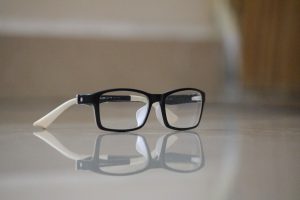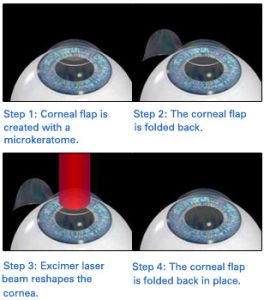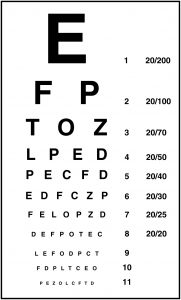“Why don’t you try contact lenses,” my optometrist offered when I told him I hated my glasses. This is a more common situation than not. I hated spending $200 on glasses each time I wanted to change my style, which is already on the lower end of the price range. Similarly, getting contacts would mean spending up to $1200 a year! Thus, are contact lenses the only solution to glasses?
NO!

A pair of stylish glasses. Credit: Max Pixel
I am sure you have heard of the term myopia and presbyopia or even astigmatism. These are all different types of refractive errors; a condition where the shape of your eye does not bend light properly. With the introduction of refractive surgery, the eye care scene grew drastically with new methods to correct refractive errors through changing the eye’s structures.
Where to Start?
Like any medical procedure, you will arrive for your initial consultation. Your visit will likely begin with the careful investigation of your medical history and countless tests to assess your eye. Then your doctor will discuss the different procedures you are a candidate for. Two of these are LASIK and PRK.
What is LASIK?
Laser-assisted in situ keratomileusis or more commonly known as LASIK, is the most well-known refractive surgery technique. By using a laser, ophthalmologists form a thin flap in the cornea – a transparent dome covering the outermost layer of the eye – making the removal of a specific amount of corneal tissue possible, before refolding the flap into its original position. This alters the eye’s ability to focus light.

The basic steps on the LASIK procedure. Credit: Andrearchy LASIK
What is PRK?
Do you enjoy sports or just have a very active lifestyle in general? If so, another type of refractive surgery called photorefractive keratectomy (PRK) is perfect for you. In contrast to LASIK, where instead of creating a corneal flap that can become dislodged with intense movement, the doctor will remove the corneal epithelial, which will allow a laser to reshape the deeper cornea.

Am I Free From Corrective Lenses Now?
It would be pointless if your surgery does not improve your eyesight at all. That’s money down the drain! With any of the procedures, most people end up with 20/40 vision or better. Thus, you can leave your fashionable glasses at home!

Snellen chart to help determine visual acuity.
Credit: Wikimedia Commons
Laser Correction Sounds Exciting, but Scary!
Unfortunately, there are inherent risks and potential side effects. Over time your eyesight will deteriorate and you might one day need glasses again to see properly. As for the immediate side effects of surgery, there is the rare chance of going blind, but in the hands of an expert surgeon the probability is 1 in 5 million. Instead, the possibility of chronic dry eyes is more worrisome. Thus, as you begin your journey remember to save up some money in advance for artificial tears!
By: Jodie Xie
SaveSave
SaveSave

5 responses to “Does Not Wearing Glasses Mean Contact Lenses for Life?”